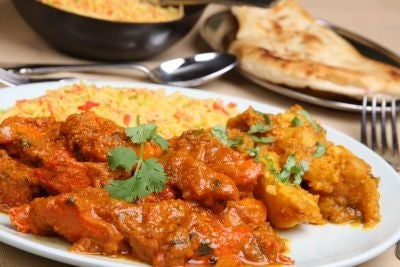Your support helps us to tell the story
From reproductive rights to climate change to Big Tech, The Independent is on the ground when the story is developing. Whether it's investigating the financials of Elon Musk's pro-Trump PAC or producing our latest documentary, 'The A Word', which shines a light on the American women fighting for reproductive rights, we know how important it is to parse out the facts from the messaging.
At such a critical moment in US history, we need reporters on the ground. Your donation allows us to keep sending journalists to speak to both sides of the story.
The Independent is trusted by Americans across the entire political spectrum. And unlike many other quality news outlets, we choose not to lock Americans out of our reporting and analysis with paywalls. We believe quality journalism should be available to everyone, paid for by those who can afford it.
Your support makes all the difference.New research suggests that when it comes to healthy eating, it's best to fight fat with fire.
Spicing up meals with turmeric, cinnamon, paprika and black pepper could help counter the negative effects of high-fat meals, says a new study published in this month's Journal of Nutrition.
According to researchers from Pennsylvania State University, adding spices to high-fat meals helped reduce triglyceride levels by up to 30 percent compared to control meals in which no spices were added. Triglycerides are a type of fat found in the bloodstream.
To conduct their experiment, researchers fed six overweight but otherwise healthy men between the ages of 30 and 65 two separate meals that consisted of chicken curry, Italian herb bread and cinnamon biscuits.
To one meal, they added two tablespoons of spices like rosemary, oregano, cinnamon, turmeric, black pepper, cloves, garlic powder and paprika. The spices were chosen for their potent antioxidant properties.
Researchers drew blood from the participants every 30 minutes for three hours, and found that antioxidant activity in the blood increased by 13 percent, while insulin response decreased by 20 percent after the spice-laden meal.
The spice dosage provided the equivalent amount of antioxidants contained in five ounces of red wine or 1.4 ounces of dark chocolate.
If oxidative stress contributes to chronic illnesses like heart disease, arthritis and diabetes, researchers point out that antioxidants could help play a role in combating its deleterious effects.
Another study out of the University of Georgia also found herbs and spices like cloves, cinnamon, oregano and sage inhibited tissue damage and inflammation caused by high levels of blood sugar.
For a list of spicy recipe ideas, visit http://www.food.com/recipes/spicy.
http://jn.nutrition.org/content/141/8/1451

Join our commenting forum
Join thought-provoking conversations, follow other Independent readers and see their replies
Comments